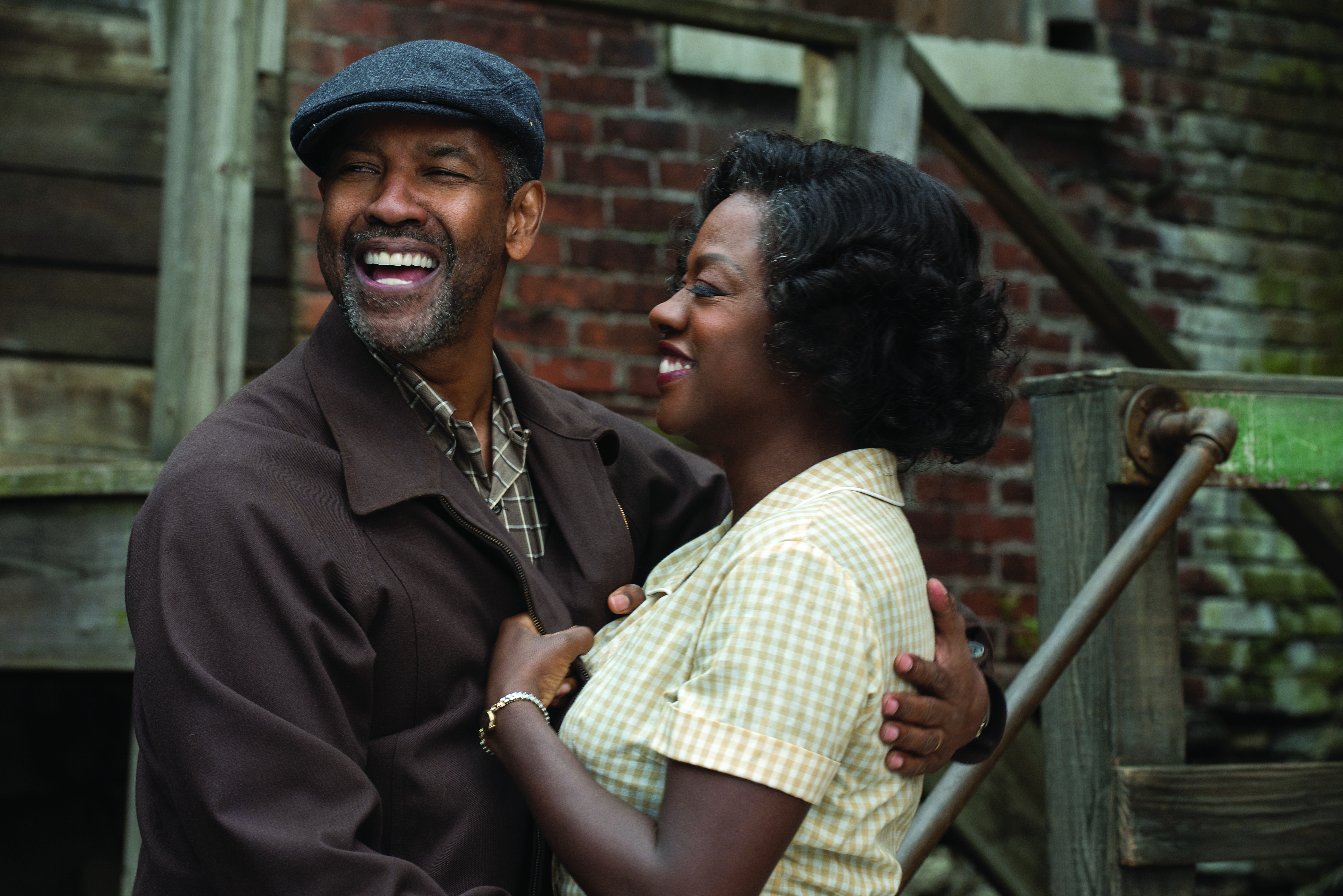
Building Fences: Troy Maxson, played by Denzel Washington, and Rose Maxson played by Viola Davis, recreate the Pulitzer-winner play by August Wilson
“Fences” is a fierce and moving film that honors the men and women that people never talk about: the people that were invisible.
In an industry dominated by superhero and white entrepreneur biographical dramas, Denzel Washington, who directs and stars in the film, gives a revival of playwright August Wilson’s 1987 Pulitzer Prize-winning screenplay, “Fences”. This film is about a working-class black family in the 1950’s, focused on father Troy Maxson, played by Washington, and his wife, Rose, played by Viola Davis.
“Fences” is part of a 10 play series that explores the African-American experience in every decade of the 20th century. Previous attempts to adapt the play for the screen failed, partly due to Wilson’s insistence on utilizing an African-American director.
Washington has since made it his mission to adapt all of the Pittsburgh Cycle plays into film. Washington not only produced and directed this adaptation, but he also revitalized his 2010 broadway role of the compelling and complex Troy Maxson.
As Troy sees it, nothing about his life makes a difference. And he talks about it any chance he gets. Whether it’s in his backyard hogging a bottle of gin, or on the job hauling garbage, he never stops talking.
Troy is first seen as a hardworking, strong-willed father who wants to provide for his family. He’s funny, a great storyteller, and the embodiment of masculinity. He was once a Negro League baseball star who aged out a generation before Jackie Robinson became the first African-American Major League player. Feeling wronged, Troy isn’t inclined to let anyone else enjoy the success denied to him. That includes his teenage son, Cory, played by Jovan Adepo, who has an interview scheduled with a college football recruiter.
In this Civil Rights era family drama, Washington takes a modest approach to directing. He uses wide shot cinematography with limited scene cutting that leaves the effect of live theater. The long dialogue filled scenes provide opportunities for each character to shed light on the real nature of Troy.
There is a moment in the film where Troy’s selfishness is revealed after Rose learns of his affair. Viola Davis delivers a tearful, scalding, nose-running monologue that, for a few shattering moments, drags the fallout of what Rose had to give up in her life to stay with her husband.
Combining elements of stage and film, “Fences” bridges the gap between the two art forms and brings theater to the next generation. Students unfamiliar with the art of live drama will love the continuity of the sets and the feeling that they are a part of the conversation.
In the beginning, for instance, Troy and his friend Jim Bono are joined by his wife Rose in a scene that depicts a typical Friday afternoon in Philadelphia. The unchanging setting paired with witty banter makes the viewer believe they are seeing live actors on a stage.
“Fences” is the kind of film that shapes us as human beings. It is a story that crosses cultural, racial, and generational boundaries. It gives us a glimpse into the past and sheds away the dry lessons of our history books by striking us sober with the realities of race and class struggle, all while going deep into familial relationships. Communication and friction between father and son are big themes throughout this film, themes to which students, no matter their age, can relate.
By giving ourselves a two-hour break in our busy lives to watch “Fences,” we can return to our classrooms, no matter the academic discipline, with more feeling in our hearts.


